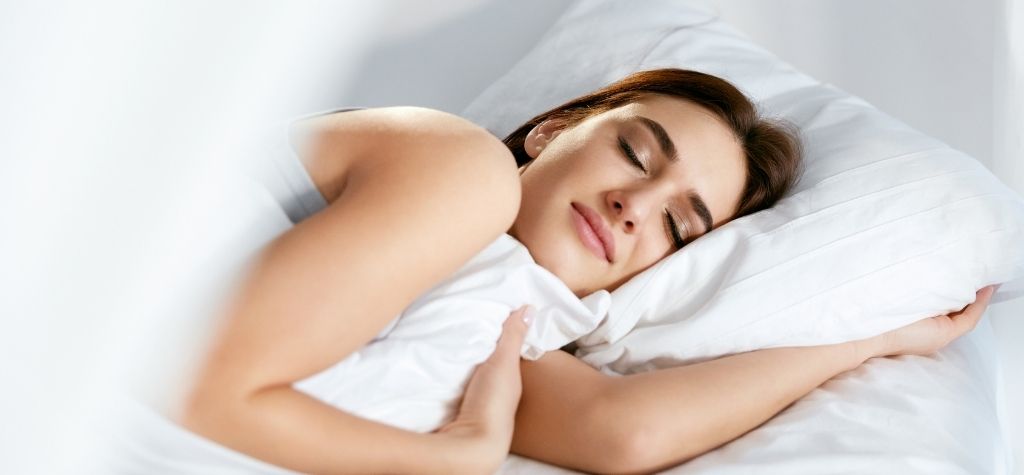Sleep plays a critical role in overall health, and your eyes are no exception. Poor sleep habits can negatively impact your vision, leading to discomfort and potential long-term issues. In this article, we’ll uncover eight sleep habits that could be wrecking your vision and provide actionable tips to keep your eyes healthy.
Why Sleep Is Essential for Eye Health
During sleep, your eyes rest and recover from the day’s stress. Proper sleep helps maintain tear production, reduces inflammation, and promotes overall eye health. Without sufficient rest, your eyes can become dry, irritated, and more prone to vision problems.
The Link Between Sleep and Vision

Chronic sleep deprivation doesn’t just leave you feeling tired—it can lead to serious eye issues, including:
- Dry Eye Syndrome: Reduced tear production can cause discomfort and blurry vision.
- Eye Twitching: Known as myokymia, often caused by fatigue.
- Glaucoma Risk: Poor sleep patterns have been linked to increased intraocular pressure.
8 Sleep Habits That Could Be Wrecking Your Vision
1. Not Getting Enough Sleep
Adults need 7–9 hours of sleep per night for optimal health. Lack of sleep can lead to eye strain, dryness, and even blurry vision over time.
2. Sleeping With Makeup On
Failing to remove eye makeup before bed can clog glands, leading to irritation, infections, or styes. Always cleanse your face thoroughly before sleeping.
3. Using Screens Before Bed
The blue light from phones, tablets, and computers disrupts melatonin production, delaying sleep and contributing to digital eye strain.
4. Sleeping in Contact Lenses
Wearing contacts overnight reduces oxygen flow to the cornea, increasing the risk of infections, corneal ulcers, and irritation.
5. Inconsistent Sleep Schedule
Irregular sleep patterns can confuse your body’s internal clock, leading to fatigue and impacting your eye’s ability to repair itself.
6. Sleeping in Poor Air Quality
Dry or polluted air, often caused by air conditioning or heaters, can irritate your eyes while you sleep. A humidifier can help maintain moisture levels.
7. Improper Sleeping Positions
Pressing your face into a pillow or sleeping on your stomach can put pressure on your eyes, potentially affecting circulation and vision.
8. Overlooking Nighttime Hydration
Dehydration can lead to dry eyes, especially during long periods of sleep. Drinking water before bed (in moderation) can help maintain hydration.
How Poor Sleep Affects Eye Conditions

Poor sleep doesn’t just cause temporary discomfort; it can worsen existing eye conditions:
- Glaucoma: Sleep apnea and poor sleep can increase intraocular pressure, a risk factor for glaucoma.
- Macular Degeneration: Chronic sleep deprivation may accelerate age-related vision loss.
- Diabetic Retinopathy: Poor sleep quality can exacerbate complications from diabetes, including retinal damage.
Tips to Improve Sleep for Better Vision
1. Create a Bedtime Routine
Set a consistent schedule to help regulate your body clock and promote restful sleep.
2. Limit Screen Time Before Bed
Avoid screens for at least an hour before bedtime. Use blue light filters if screen use is unavoidable.
3. Remove Contact Lenses
Take out your contacts every night to allow your eyes to breathe and reduce the risk of infections.
4. Optimize Your Sleep Environment
Keep your bedroom cool, dark, and free of allergens to support better sleep quality and eye health.
5. Stay Hydrated
Drink water throughout the day and a small glass before bed to keep your eyes and body hydrated.
6. Practice Good Hygiene
Always remove makeup and cleanse your face before sleeping to prevent eye irritation or infections.
FAQs About Sleep and Eye Health
Q1: How does sleep deprivation affect your eyes?
Lack of sleep causes dryness, redness, twitching, and can increase the risk of more serious conditions like glaucoma over time.
Q2: Can sleeping with makeup harm your eyes?
Yes, it can lead to clogged glands, irritation, and infections like styes or conjunctivitis.
Q3: Is it bad to sleep in contact lenses occasionally?
Even occasionally sleeping in contacts can increase the risk of eye infections and corneal damage.
Q4: Does blue light from screens impact vision?
Blue light disrupts sleep patterns and contributes to digital eye strain, causing discomfort and fatigue.
Q5: Can dehydration affect eye health during sleep?
Yes, dehydration can lead to dry eyes, causing discomfort and blurry vision after waking up.
Conclusion: Prioritize Sleep to Protect Your Eyes
Your nightly habits have a significant impact on your eye health. By making simple adjustments to your sleep routine, you can protect your vision, reduce discomfort, and lower the risk of long-term issues.
Sleep well, see well—start prioritizing your eye health tonight!

